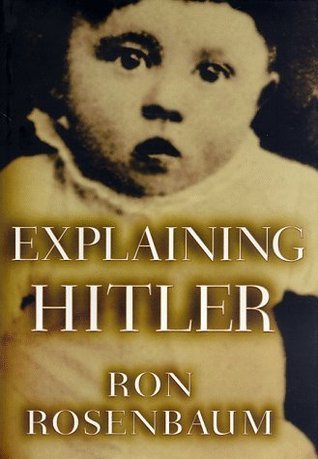What do you think?
Rate this book


444 pages, Hardcover
First published January 1, 1998
Hitler is explicable in principle, but that does not mean that he has been explained. - Yehuda Bauer
There will never be an adequate explanation. . . . The closer one gets to explicability the more one realizes nothing can make Hitler explicable. — Emil Fackenheim
But Claude Lanzmann goes further even than that, goes deeper to a third level despair—to a revolt against explanation itself, to a personal war against the question Why. For Lanzmann, the attempt to explain Hitler is not merely futile but immoral—he calls the very enterprise of understanding obscene.
Not to resist all or any inquiry, not to resist thought, but to resist the misleading exculpatory corollaries of explanation. To resist the way explanation can become evasion or consolation, a way of making Hitler’s choice to do what he did less unbearable, less hateful to contemplate, by shifting responsibility from him to faceless abstractions, inexorable forces, or irresistible compulsions that gave him no choice or made his choice irrelevant. To resist making the
kind of explanatory excuses for Hitler that permit him to escape, that grant him the posthumous victory of a last laugh.
The shock of the moral and historical idiocy of Roberto Benigni’s Life Is Beautiful “heartwarming” Holocaust fantasy still remains with me. (I wrote an essay about Chaplin and Benigni, whose triumphalist clowning at the Oscars, dancing not just on the chairs but, metaphorically, on the graves of the dead, I still find disgusting beyond belief. I called it “The Arrogance of Clowns.”) It was probably Spielberg’s Schindler’s List that opened the floodgates for teary, uplifting Holocaust tales. As someone put it, Spielberg made a movie about one Christian saving 400 Jews instead of a movie about a continent of Christians killing 6 million. Not that the Schindler story shouldn’t be told, but that one, the one that climaxed with a teary, colorful celebration of the Schindler survivors in the land of Israel, was given preeminence. A happy ending to a Holocaust movie!.